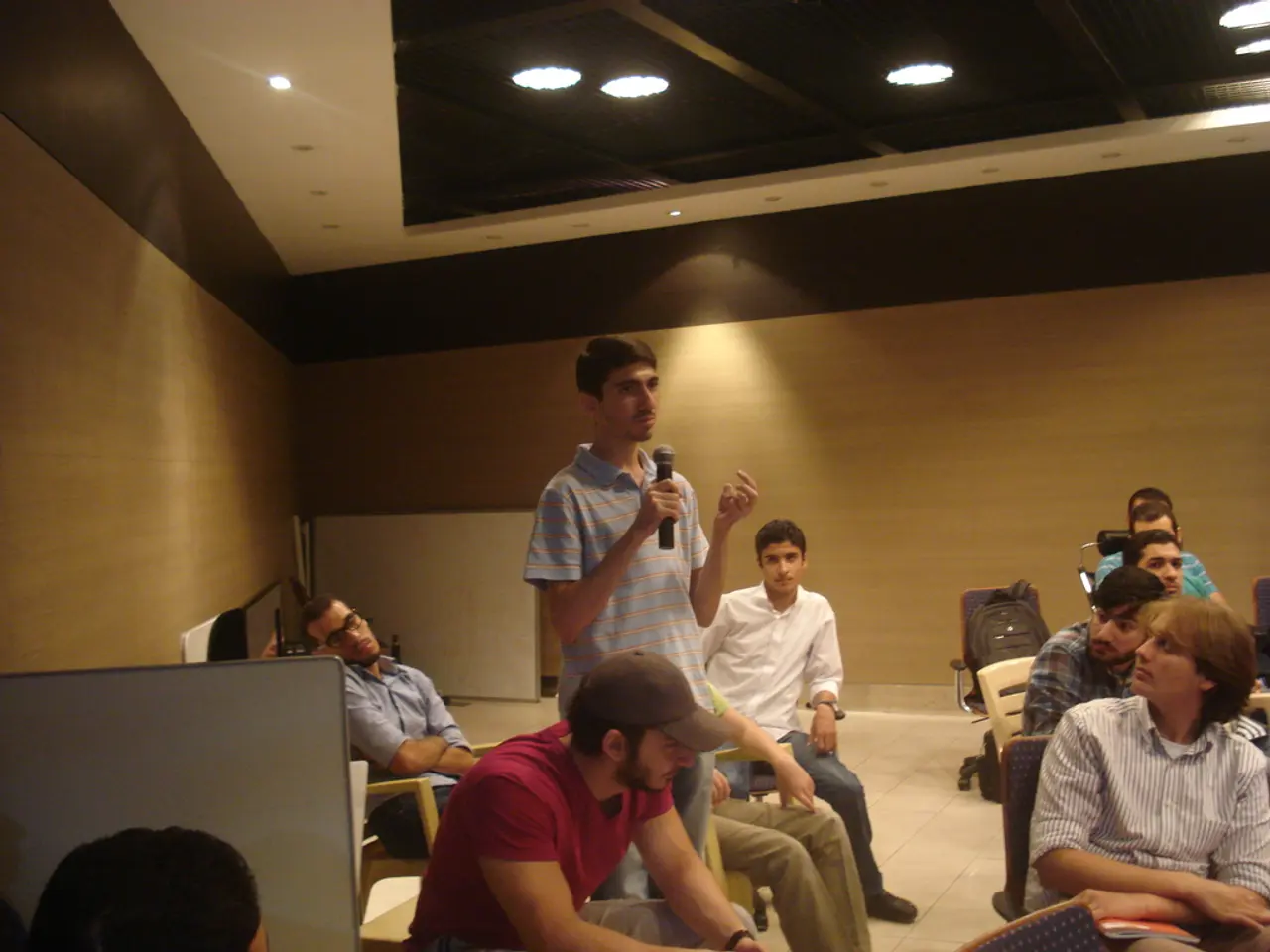A year's journey through the digital realm
Young Political Communicators Club: Bridging the Gap Between Talent and Development
The Young Political Communicators Club (YPCC), a year old and boasting over 500 members, was founded with a mission to bring together young political communicators from various parties. Nina Weise and a speaker, who were colleagues in the German Bundestag, recognized the need for such a platform after a conversation about the challenges faced by young political communicators.
One of the key learnings from the YPCC's first year is that everyone wants young talent, but few actively support their development. To address this issue, political organizations can take a proactive approach by providing targeted fellowships, trainings, and platforms that enhance leadership, communication skills, and issue-based advocacy. These initiatives should focus on improving both technical skills in media production, digital communication, and storytelling, and substantive knowledge of policy issues and political processes.
A prime example of such an initiative is Cultural Survival’s Indigenous Youth Fellowship, which funds youth-led projects that build media platforms and teach skills like journalism, legal literacy, and environmental communication. Such fellowships empower young leaders to advocate for their communities and safeguard culture through strategic communication.
Advocates for Youth runs leadership programs specifically tailored to young people, combining intensive advocacy and mobilization training with active campaign participation. This approach helps youth become public spokespersons and policy advocates. The Future Caucus network, which activates Gen Z and millennial policymakers, exemplifies how platforms that connect young political actors encourage pragmatic cooperation and visibility within formal political structures.
Organizations like the SAME Young Professionals Council engage young professionals through educational events, networking, and mentorship. These efforts highlight the importance of sustained engagement and recognition in professional development.
To maximize effectiveness, political organizations should combine these elements by offering funded fellowships and internships, designing issue-focused leadership training, creating networks or caucuses, providing platforms for youth voices, and emphasizing inclusive and diverse recruitment.
The YPCC encourages young communicators to professionalize their public relations by demonstrating expertise, actively participating in discussions, and providing a platform for other young talents. Networking is crucial for young communicators, but the YPCC stresses the importance of building a network of peers, not just upward connections with leaders and employers.
The YPCC has encountered a problem where many leaders and employers express interest in young talent but are unwilling to actively support their development. The club's members report that the really good young talents cannot be bound by singular engagements, as their demands are higher but not unattainable.
The YPCC emphasizes the importance of a well-structured talent development program that extends over several years, including in-house mentoring, a professional feedback culture, budgets for training, and flexible work policies. Nina Weise and the speaker shared concerns about the challenges faced by young women in the industry and the lack of networks for young political communicators.
In the fall of 2023, the speaker was working as a scientific employee for a member of the German Bundestag. This experience led to a job posting for a public relations employee being received via email, but it was only sent to the internal distribution list and not publicly posted. This sparked a conversation between Nina Weise and the speaker, leading to the formation of the YPCC.
The YPCC's initiatives aim to bridge the gap between talent and development, equipping young political communicators to challenge existing narratives and contribute meaningfully to political discourse.
On top of challenging existing narratives and contributing to political discourse, education and self-development are crucial for young political communicators. This includes personal growth, career development, and skills training, such as media production, digital communication, and storytelling.
To maximize effectiveness, political organizations should focus on providing fellowships, trainings, and platforms that focus on technical skills, policy knowledge, leadership, and communication skills, thereby addressing the gap between talent and development, as emphasized by the Young Political Communicators Club (YPCC).




